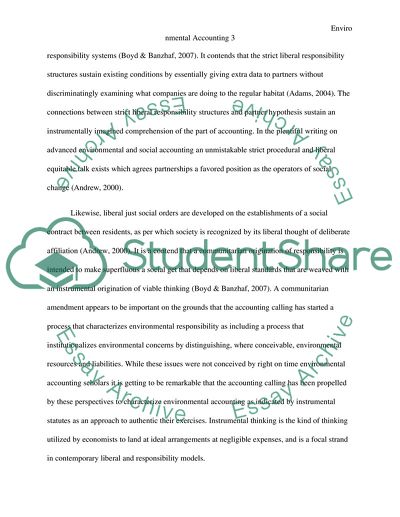Cite this document
(Whether Environmental Accounting Prove Destructive of Nature Dissertation, n.d.)
Whether Environmental Accounting Prove Destructive of Nature Dissertation. Retrieved from https://studentshare.org/environmental-studies/1867160-whether-environmental-accounting-prove-destructive-of-nature
Whether Environmental Accounting Prove Destructive of Nature Dissertation. Retrieved from https://studentshare.org/environmental-studies/1867160-whether-environmental-accounting-prove-destructive-of-nature
(Whether Environmental Accounting Prove Destructive of Nature Dissertation)
Whether Environmental Accounting Prove Destructive of Nature Dissertation. https://studentshare.org/environmental-studies/1867160-whether-environmental-accounting-prove-destructive-of-nature.
Whether Environmental Accounting Prove Destructive of Nature Dissertation. https://studentshare.org/environmental-studies/1867160-whether-environmental-accounting-prove-destructive-of-nature.
“Whether Environmental Accounting Prove Destructive of Nature Dissertation”, n.d. https://studentshare.org/environmental-studies/1867160-whether-environmental-accounting-prove-destructive-of-nature.


